I am thirty-four years old, and my husband is dead.
I met Chris when I was eighteen; we started dating when I was twenty.
My entire adult life was with this person.
I am a widow. I am also a mother of three young children.
You Don’t Get It.
You actually can’t even imagine it.
So, unless you are also a young widow left to raise three children on your own, don’t tell me that you know how I feel.
AND, as a white woman who was married to a white man, raising white children, I do not understand what it is like to live as a person with black or brown skin in a society that is dominated by white privilege.
If you are white and you want to understand the statement, “Black Lives Matter,” you need to listen to someone who is black. The ones experiencing the pain know it best.
Do I Make You Awkward?
I am familiar with people avoiding hard things. I am grieving; people avoid me ALL THE TIME.
My grief makes you feel uncomfortable, so now the situation becomes about your discomfort instead of mine. Your response is to say nothing. It’s so much easier to do nothing, isn’t it?
There is nothing worse.
A grieving person who is in pain wants you to ACKNOWLEDGE.
The black community is grieving, you may not know what to say, but I have learned from my grief that acting as if the situation does not exist makes it even more painful.
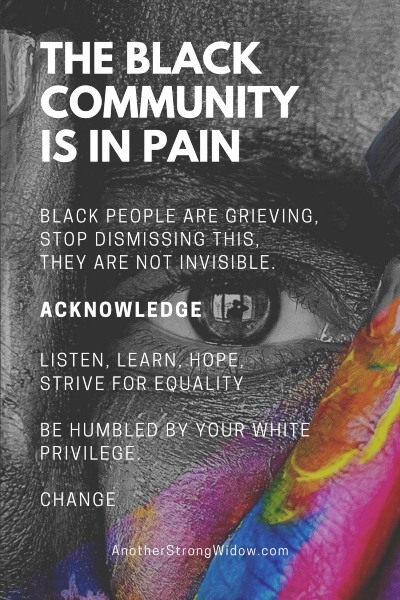
I have been searching for the proper response to the killing of George Floyd and its stimulation of a global uprising over the humanitarian rights of Black people. I see others struggling to find the words too. We don’t want to say the wrong thing; we don’t want to offend. I also know that saying nothing and remaining silent isn’t the answer. I know, as a grieving person, do ANYTHING except nothing.
Open Your Ears
I will never understand the discrimination or the anger that people in the black community feel, but I can be present, and I can listen. The last thing Black people need, after hundreds of years of this crap, is to feel dismissed or invisible when they speak.
My husband, Chris, had cancer. It was awful. As his advocate, I felt unheard and frustrated all the time. As his caregiver, I was invisible.
Would the experience have been even worse if we were black? I didn’t have that further outrage to deal with, wondering if care would improve by changing the colour of our skin – white privilege.
We are all at the end of an era, the forefront definer of our times is no longer the terrorist attacks of 9/11. Enough is enough, the black community is tired, and humanity is listening.
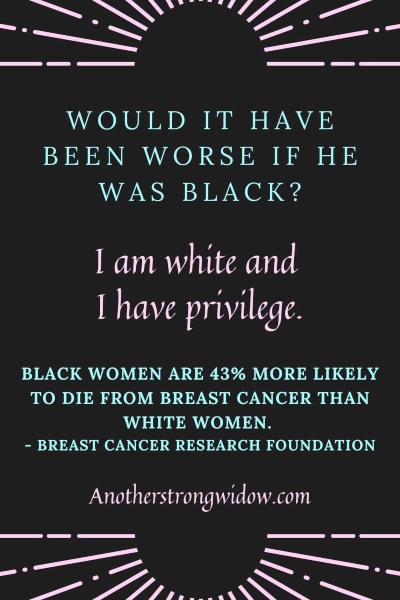
Solo Parenting
I worry about the struggles that my children face moving forward in their lives. Statistics show that they are at a disadvantage because they do not have two parents. My love and time are spread too thin; when the chores finish, there is no time left for play. They lack their father’s opinions, teachings, support and have reduced financial security.
This situation also affects many Black families. The difference is that the colour of my skin is not something that makes my life harder. I have many fears for my children. The way that they are treated or perceived in this world based on their race is not one of them.
Again, this is my white privilege.
Widowhood also does not discriminate. Black single mothers even have a derogatory term to invoke more stigmatized hate. Being a single mother with three young children does expose me to many judgments, but I have never been called a welfare queen.
Learning About Racism
My first memorable experience with racism happened when I was twenty-four years old, in the doghouse of a drilling rig. I was in the company of only white people, and when I accused someone of being racist for a comment I don’t recall, their answer was, “I’m not racist, I just don’t want my sister to marry one.” This was a pivotal eye-opening moment for me; I have been learning ever since.
Sir William Macpherson, defined institutional racism as: “The collective failure of an organization to provide an appropriate and professional service to people because of their colour, culture, or ethnic origin. It can be seen or detected in processes, attitudes and behaviour which amount to discrimination through prejudice, ignorance, thoughtlessness and racist stereotyping which disadvantage minority ethnic people.”
White People are Racist, Even in Canada
Society and the arrangement of institutions by which humans live together and interact with each other favours those with white skin. We are born into these societal structures, and they are inescapable. Inaction to change is where the problems lie. Are all White people, who sit idle in their opportunities, racist?
To turn your head away from systemic racism is to accept it. If you are not outraged, it is because you are not directly affected by it, and are unconsciously benefiting.
Black people in Canada are underrepresented in our universities, and nearly twice as likely to be unemployed.
They are also more likely to be victims of crime. In an analysis of arrests in Toronto, Canada, Black people accounted for up to 40% of murders yet are just 4% of the population. Black people are 50% more likely to be taken to a police station for processing after arrest and 100% more likely to be held overnight compared to white people.
In Nova Scotia, the province I am from Black people makes up 2% of the population, but 14% of the people incarcerated.
There is a hidden subconscious of learned racial biases, and these automatic associations are often driven by fear.
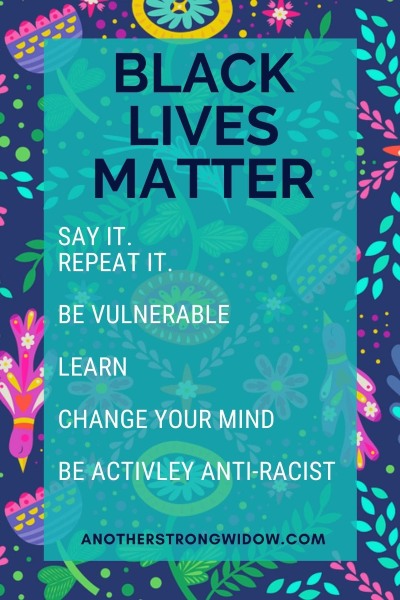
Colour-Blind
I didn’t see racism when I was growing up, but obviously, it existed. I actually believed it was not in the community I lived in—another example of my white privilege.
When I show pictures of people with different skin colours to my children, they notice the guitar in the boy’s hand, a pretty butterfly barrette in the girl’s hair, or the embracing hug the friends are giving each other.
I see people celebrating when their children respond this way, but my opinion is that this demonstrates that my children have not been taught about racism. Would a black child react the same way? Not noticing the skin colour of the subjects in a photograph is a privilege.
I used to think that if I did not observe a difference in skin colour, then I was doing my part for racism.
What a bunch of bologna, how ignorant to be colour-blind, and blind to my advantage. To proclaim that you do not see a race is dishonourable to a diverse culture rich in history. You are saying everyone is equal, and there is nothing to fix. See the colour, honour that colour, value that colour and work to protect it.
“I’m not interested in living in a world where my race is not a part of who I am. I am interested in living in a world where our races, no matter what they are, don’t define our trajectory in life.” -Kerry Washington
Strive to Be Anti-Racist and Actively Challenge It
Years ago, at my job in a white male-dominated industry, I asked why the hardworking gentleman that had been there longer than others never received a promotion. The response that I got was simple “because he is black.” Wow…that still sticks with me.
I should have done more. I should have made it my business. I wish I had elevated my appreciation for this man’s hard work to someone who may have listened.
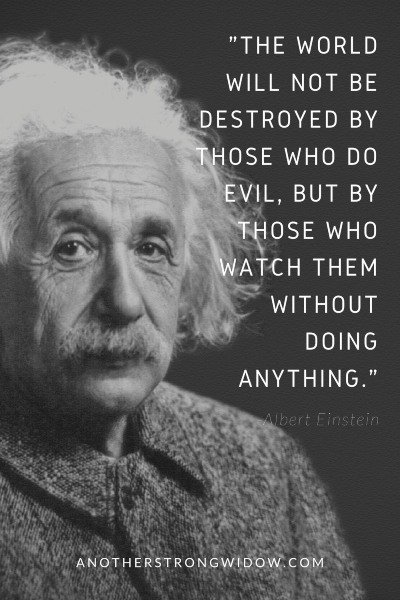
In recent weeks I have become more aware. I have learned about local black history, and through social media and generous sharing, I have learned facts about other regions too. I have spent time listening to experiences of those hurting and reflecting on things I have yet to understand fully.
It is ok to change your opinion when you learn something new. Have courage and let yourself be vulnerable—black lives matter. If you haven’t said it before, you can say it now. My skin is white, and I do have privilege, I acknowledge this.
You may feel like the world has stopped, normal is gone. Everything is going to be different from now on, it’s ok to think that change is hard.
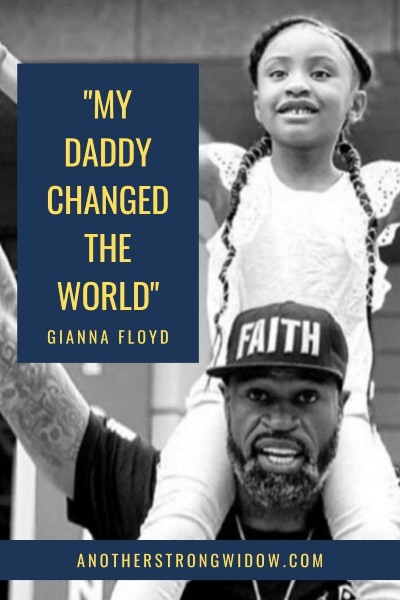
It is my grief that has led me down the most significant path of reflection over the Black Lives Matter movement. When I consider reactions to me and the way I feel, I repeatedly draw correlations to others who are in pain or feel misunderstood and unheard.
“Chris wouldn’t want you to be sad.” “He’s in a better place now.” “You’re young; you have lots of time to move on.”
“I’m white, and my life is hard too.” “All the looting is horrible.” “I worked hard for what I have; my skin colour has nothing to do with it.”
Stop Saying All of That.
Grief is a part of our entire body; it can physically hurt, and it is exhausting. The black community feels this collective grief that spans generations. It is not something that you get over and move on from, this is ingrained in who we are, a part of you that you will carry forever.
Open your ears and heart, listen, be present, and ask questions if you do not understand.
Examples of Casual Racism
- “When you speak, your words are so articulate.”
- “Where are you actually from?”
- “There is only one race, the human race.”
- “Your skin is so light; you don’t look bi-racial.”
- Mistaking a person of colour for a service worker.
- Using dark emojis when you are light-skinned.
Racial microaggressions are commonplace, frequent, and often don’t intend harm. Sometimes they are said as a compliment and said by people who consider themselves to be non-racist, but in fact, the comments contain an insult to the receiver. Microaggressions can be seen as acceptable within society; the neverending offences accumulate pervasively causing harm. When white people act dismissively as if they are not a big deal or someone is too sensitive, this enacts additional hurt.
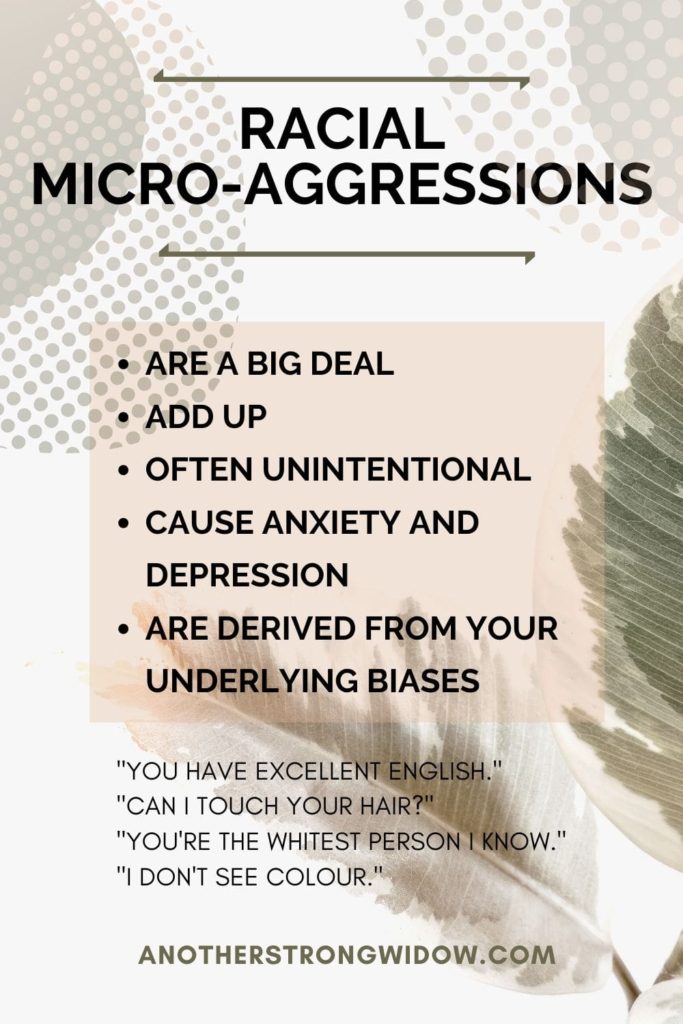
If you are white, can you think of a time that you gained from this privilege? Perhaps you never realized until now, I know I have been given a lot to think about as I learn.
If you are a member of a suppressed community, point out the inequalities, and tell me how I can do better.

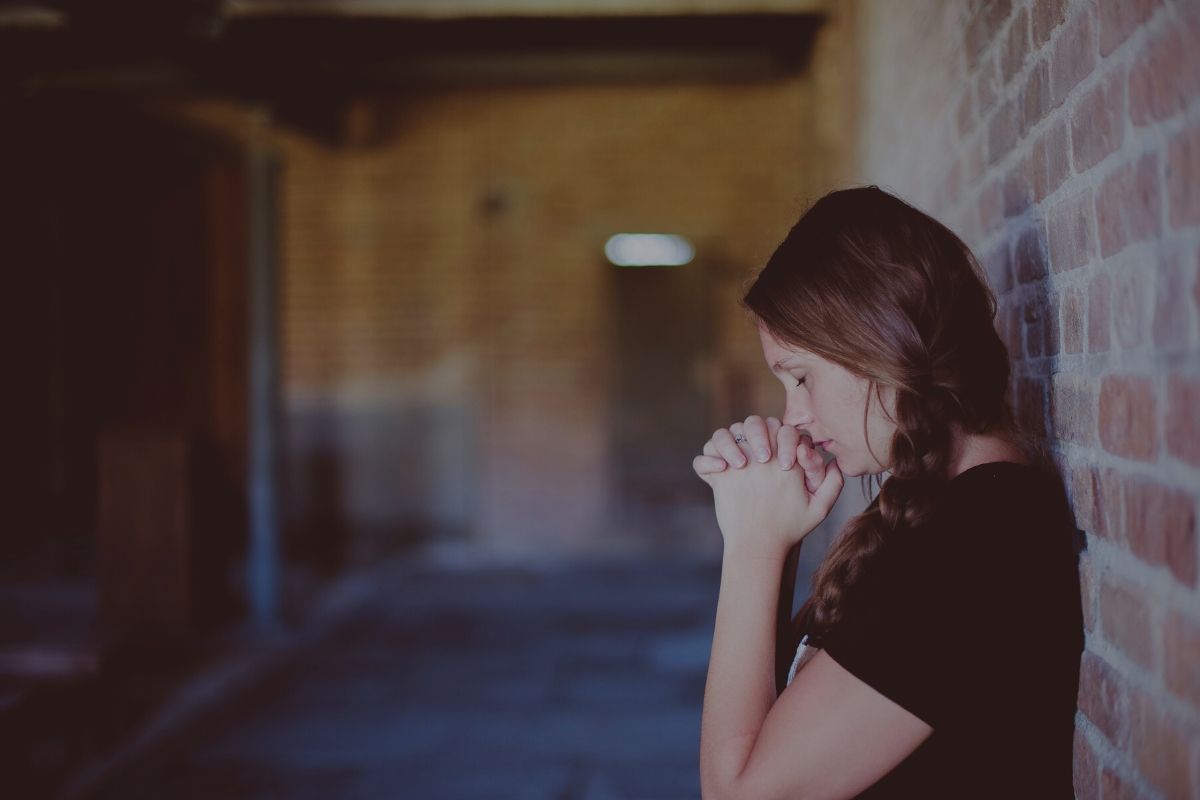

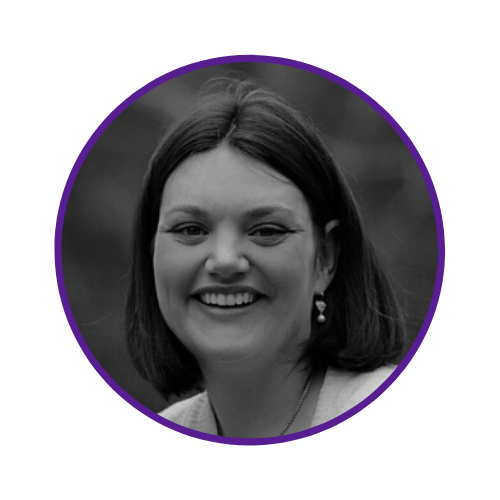
This was so helpful, thank you. My good friend was recently widowed and this really helps put things in perspective.
Thank you, Christine.
This is beautifully written – thank you! It has given me some points to think about – especially microaggressions.
Woah. I’ve never seen someone make the correlation of losing a spouse and grieving to how black people feel when treated with racism and you did such an excellent job. This was a great comparison. Thank you for being a voice and speaking out. Being black myself, I appreciate this.
Thank you for expressing your grief and acknowleging the pain and grief of the black community
A very moving article, it brought tears to my eyes. – Thank you.
Thank you, I am happy I could touch you with my writing.
Just beautiful! Your strength is shown in your words. From this black mom, thank you!
Thank you Alanda, this means a lot to me.
Thank you for sharing your raw emotions and perspectives! I have been through a lot of adversity in my life, and relate to your experiences. Stay strong and beautiful!
Thank you Alicia.
At first, I wasn’t sure what to expect when I opened your post, but I was devastated by your loss and captivated by your path to making the correlation to racism. This was truly a very moving piece, and I compliment your strength in writing so ‘raw.’ As a black woman, I thank you for your awareness and courage to write so openly. As a mother, my condolences to you and your children. As you indicated, I cannot understand what you are feeling or going through, but I can empathize. And from one mother to another… my prayers are offered up for you and your family.